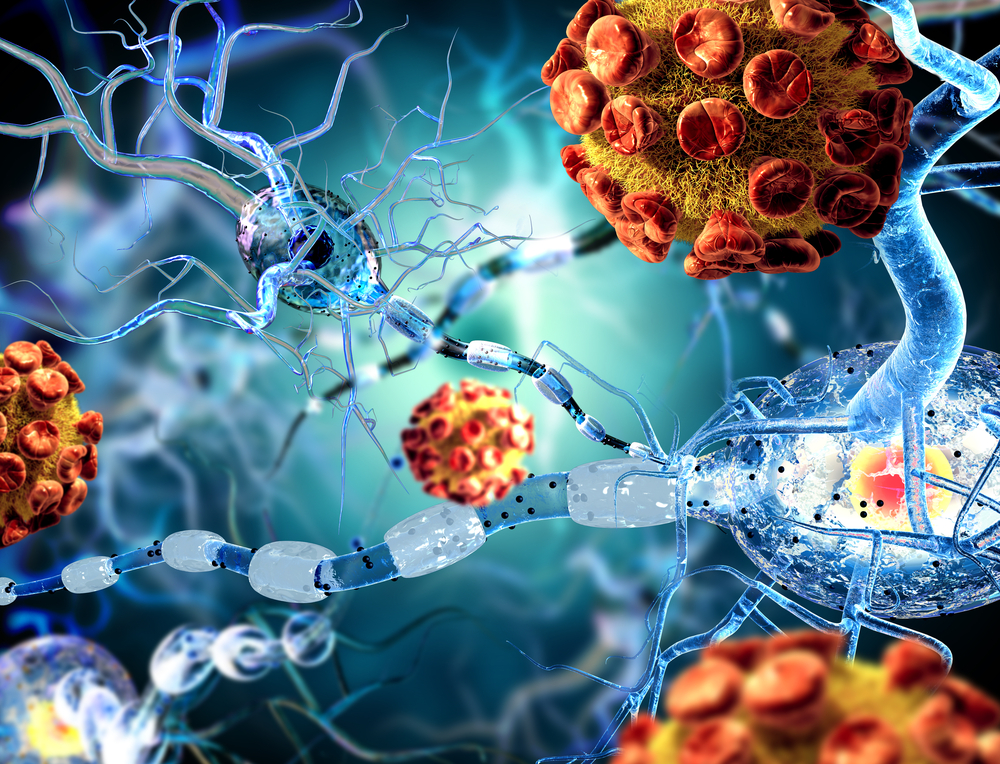In a recent study of more than 1,200 patients with multiple sclerosis (MS), a research team reported that treatment with the drug natalizumab (Tysabri) could lead to a tenfold increase in the levels of blood antibodies associated with a virus causing a rare but severe brain disease known as progressive multifocal leukoencephalopathy (PML).  The study, “Therapy with natalizumab is associated with high JCV seroconversion and rising JCV index values,” was published in the journal Neurology: Neuroimmunology and Neuroinflammation and recently discussed in a Multiple Sclerosis News Today article.
The study, “Therapy with natalizumab is associated with high JCV seroconversion and rising JCV index values,” was published in the journal Neurology: Neuroimmunology and Neuroinflammation and recently discussed in a Multiple Sclerosis News Today article.
 nd explained its mechanism of action in a University of Chicago news release. “MS is an autoimmune disease, meaning that it’s a disease of mistaken self identity. The body’s own immune system attacks myelin, an essential layer of insulation around nerve fibers. Without this protective layer, neurons in the central nervous system misfire or fail to fire at all, causing muscle weakness, balance and coordination problems, i.e. disability” he said. “Natalizumab blocks migration of immune cells into the brain and thereby leads to an immunosuppressive state in the central nervous system. It’s by this mechanism that it prevents immune cells from destroying the body’s own myelin. Due to its potent effects on the immune system and the demonstrated high efficacy of the drug inclinical trials in comparison to the older agents, natalizumab was a game changer when it came out in 2004. MS neurologists all thought, ‘why shouldn’t every MS patient be on this drug?’”
nd explained its mechanism of action in a University of Chicago news release. “MS is an autoimmune disease, meaning that it’s a disease of mistaken self identity. The body’s own immune system attacks myelin, an essential layer of insulation around nerve fibers. Without this protective layer, neurons in the central nervous system misfire or fail to fire at all, causing muscle weakness, balance and coordination problems, i.e. disability” he said. “Natalizumab blocks migration of immune cells into the brain and thereby leads to an immunosuppressive state in the central nervous system. It’s by this mechanism that it prevents immune cells from destroying the body’s own myelin. Due to its potent effects on the immune system and the demonstrated high efficacy of the drug inclinical trials in comparison to the older agents, natalizumab was a game changer when it came out in 2004. MS neurologists all thought, ‘why shouldn’t every MS patient be on this drug?’”
~~~~~~~~~~~~~~~~~~~~~~~~~~~~~~~~~~~~~



